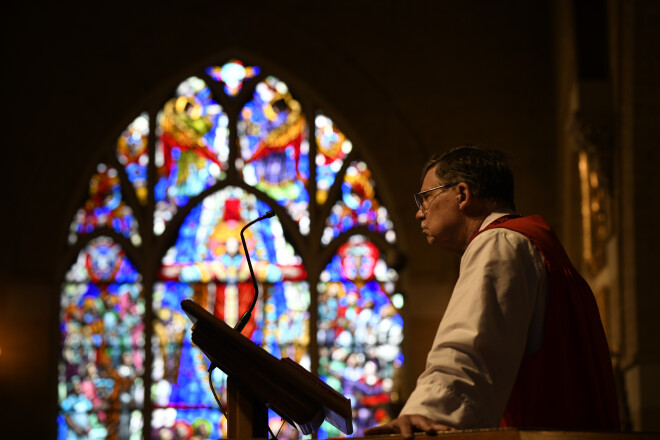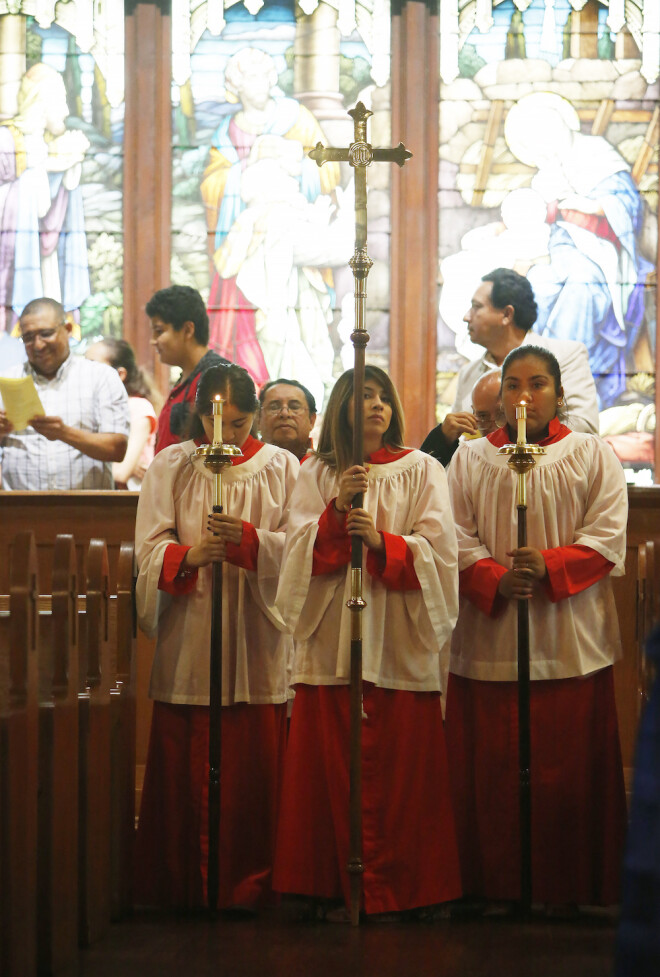Scripture as Our Glass of Vision

B.1 Scripture as our glass of vision
‘The Windows’ by George Herbert
Lord, how can man preach thy eternal word?
He is a brittle crazy glass;
Yet in thy temple thou dost him afford
This glorious and transcendent place,
To be a window, through thy grace.
But when thou dost anneal in glass thy story,
Making thy life to shine within
The holy preachers, then the light and glory
More reverend grows, and more doth win;
Which else shows waterish, bleak, and thin.
Doctrine and life, colors and light, in one
When they combine and mingle, bring
A strong regard and awe; but speech alone
Doth vanish like a flaring thing,
And in the ear, not conscience, ring.
We come now to the next section of our catechism which considers the stained glass on all sides of our spiritual and theological temple. They color the light, and so define how those within see the world. They are, in short, not one part of the edifice, but the lens, the medium, through which the worshipper sees everything.
I am borrowing here from the image found in the poem of the great Anglican poet-parish priest George Herbert, so we do well at the outset to listen to him. We, or more specifically the preacher who is one of us, is himself or herself a glass, but one that is ‘brittle, crazy.’ Something can be seen through us, as we have heard in the preceding sections, but in a distorted and fragile way. We need help to see the light truly, a place to gaze which is a ‘glorious and transcendent place,’ so as to see the world in the light of God’s grace.
In the poem Herbert makes it clear that the window implies a relation, a word spoken and received, between God and His creature. Thus, the poem is full of interaction: between God’s Word and His servants, on whom the light shines, between the doctrine (or teaching) it imparts and their lives which need to ‘read, mark. Learn, and inwardly digest’ (BCP) it. The Bible offers a narrative, a story, but it needs to be ‘annealed,’ made stronger and fitted to God’s purpose, so that we do not rework it in our own image, i.e. make it as ‘brittle [and] crazy’ like ourselves. The coming sections will address how it is that the window of Scripture enables us to see the world, ourselves and God aright.
Before I close this introduction to the ‘stained glass’ section, let me dispel one subtle misunderstanding. An anthropologist might tell us how stories serve to ground a particular community’s worldview. Maybe the Bible happens to be the foundational myth for the Christian community, so that its function may be found in how it organizes its adherents; in other words, it is useful for people ‘into that sort of thing,’ while other communities have other such stories. Well, there certainly are other communities, and their narratives likewise serve just such a function. But that preacher, and his or her listeners, are standing within the temple of God. And by those windows’ light they believe that they behold God, themselves, and the world aright. To be a Christian, then, is to believe that the light of the ‘eternal word’ gives to them, by grace, a purchase on reality. Christians must be humble, since on their own they are ‘brittle [and] crazy.’ But they cannot be in the last analysis pluralists, relativists, or nihilists. There is a truth to be seen, it does not reside in themselves, and in the light of the Scriptures it can be seen and embraced by the gift of faith.
II Timothy 3:6
All scripture is given by inspiration of God, and is profitable for doctrine, for reproof, for correction, for instruction in righteousness:



